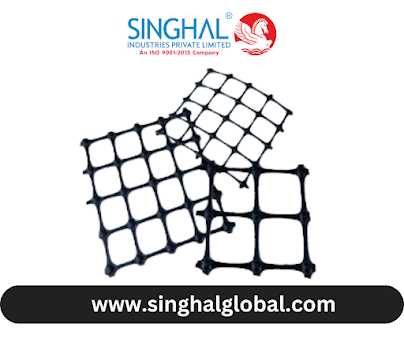Exploring the World of PP Multifilament Yarn: Suppliers and Manufacturing Process
Introduction:
PP (Polypropylene) multifilament yarn is a versatile and durable material used in various industries, including textiles, automotive, and packaging. The suppliers, manufacturers, and manufacturing process of PP multifilament yarn are integral to ensuring quality, consistency, and innovation in its production. In this guide, we'll delve into the realm of PP multifilament yarn Singhal Industries - Manufacturer of Flexible Packaging Product, explore suppliers and manufacturers, and shed light on the manufacturing process behind this essential material.
1. PP Multifilament Yarn Suppliers:
Wide Network of Suppliers:
- Suppliers of PP multifilament yarn operate on a global scale, serving clients across industries and regions with a diverse range of products and services.
Product Range:
- PP multifilament yarn suppliers offer a wide array of yarn types, specifications, and finishes to meet the unique requirements of their clients, ranging from fine denier yarns for textiles to heavy-duty yarns for industrial applications.
Quality Assurance:
- Reputable suppliers prioritize quality control and compliance with industry standards, ensuring that their products meet or exceed customer expectations for performance, consistency, and reliability.
2. Multifilament Yarn Manufacturers:
Advanced Manufacturing Facilities:
- Multifilament yarn manufacturers utilize state-of-the-art production facilities and equipment to produce PP multifilament yarn with precision, efficiency, and consistency.
Customization Capabilities:
- Manufacturers offer customization options in terms of yarn denier, filament count, twist level, and color, allowing clients to tailor the yarn to their specific requirements and applications.
Research and Development:
- Leading multifilament yarn manufacturers invest in research and development initiatives to innovate new products, improve manufacturing processes, and enhance the performance characteristics of their yarns.
3. PP Multifilament Yarn Manufacturing Process:
Extrusion:
- The manufacturing process begins with the extrusion of polypropylene polymer pellets through spinnerets to form continuous filaments, which are then cooled and solidified.
Drawing:
- The filaments undergo drawing or stretching to align the molecular chains and improve strength, uniformity, and tensile properties.
Twisting:
- The drawn filaments are twisted together to form multifilament yarns, with varying twist levels depending on the desired characteristics of the yarn.
Finishing:
- The finished yarns may undergo additional processes such as heat setting, lubrication, or surface treatment to enhance performance, appearance, and processability.
Conclusion:
PP multifilament yarn plays a vital role in various industries, offering versatility, durability, and performance for a wide range of applications. By partnering with reliable suppliers and manufacturers, businesses can access high-quality yarns tailored to their specific needs, enabling them to innovate, create, and thrive in today's competitive market landscape. Additionally, understanding the intricacies of the manufacturing process behind PP multifilament yarn manufacturing empowers businesses to make informed decisions and leverage the full potential of this essential material.
Frequently Asked Questions
1. What is PP multifilament yarn, and what are its characteristics?
- PP multifilament yarn is a type of synthetic yarn made from polypropylene (PP) fibers. It is characterized by its strength, durability, lightweight nature, and resistance to moisture, chemicals, and abrasion. Multifilament yarn consists of multiple fine filaments twisted or spun together to form a single yarn, resulting in a smooth, uniform texture.
2. What are the common applications of PP multifilament yarn?
- PP multifilament yarn is used in various applications due to its versatility, strength, and resistance properties. Some common applications include:
- Textiles: Used for weaving, knitting, and sewing in the production of fabrics for apparel, home textiles, industrial textiles, and technical textiles.
- Ropes and twines: Used for manufacturing ropes, twines, cords, and threads for applications such as fishing, marine, agriculture, construction, and household use.
- Industrial: Used for making filter fabrics, conveyor belts, geotextiles, industrial sewing threads, and other technical textiles for industrial and commercial applications.
- Packaging: Used for sewing or stitching sacks, bags, and flexible packaging materials for storage, transportation, and handling of goods in various industries.
3. How is PP multifilament yarn manufactured?
- PP multifilament yarn is manufactured through a process called extrusion spinning, which involves the following steps:
- Polymer preparation: Polypropylene resin pellets are melted and mixed with additives (e.g., stabilizers, colorants) in an extruder to form a homogeneous melt.
- Filament formation: The molten polymer is extruded through spinnerets (metal plates with small holes) to form continuous filaments with precise diameters and cross-sectional shapes.
- Quenching and solidification: The extruded filaments are cooled and solidified using air or water quenching to stabilize their structure and prevent deformation.
- Drawing and stretching: The solidified filaments are stretched and drawn to orient the polymer chains along the length of the yarn, improving tensile strength, uniformity, and elongation properties.
- Winding: The drawn filaments are wound onto spools or bobbins to create yarn packages suitable for further processing or use.
4. What are the factors to consider when selecting PP multifilament yarn suppliers?
- When selecting PP multifilament yarn suppliers, consider factors such as:
- Product quality: Look for suppliers that offer high-quality yarn with consistent performance, uniformity, and compliance with relevant industry standards and specifications.
- Production capacity: Evaluate the supplier's production capacity, capabilities, and lead times to ensure reliable and timely supply of yarn to meet your business needs.
- Technical support: Choose suppliers that provide technical assistance, expertise, and customer support to address inquiries, troubleshoot issues, and collaborate on product development or customization.
- Cost-effectiveness: Compare prices, terms, and conditions from different suppliers to find the most cost-effective solution that meets your quality and service requirements.
- Reputation and reliability: Check the supplier's reputation, track record, and references from other customers to assess their reliability, integrity, and commitment to customer satisfaction.


.png)
Comments
Post a Comment